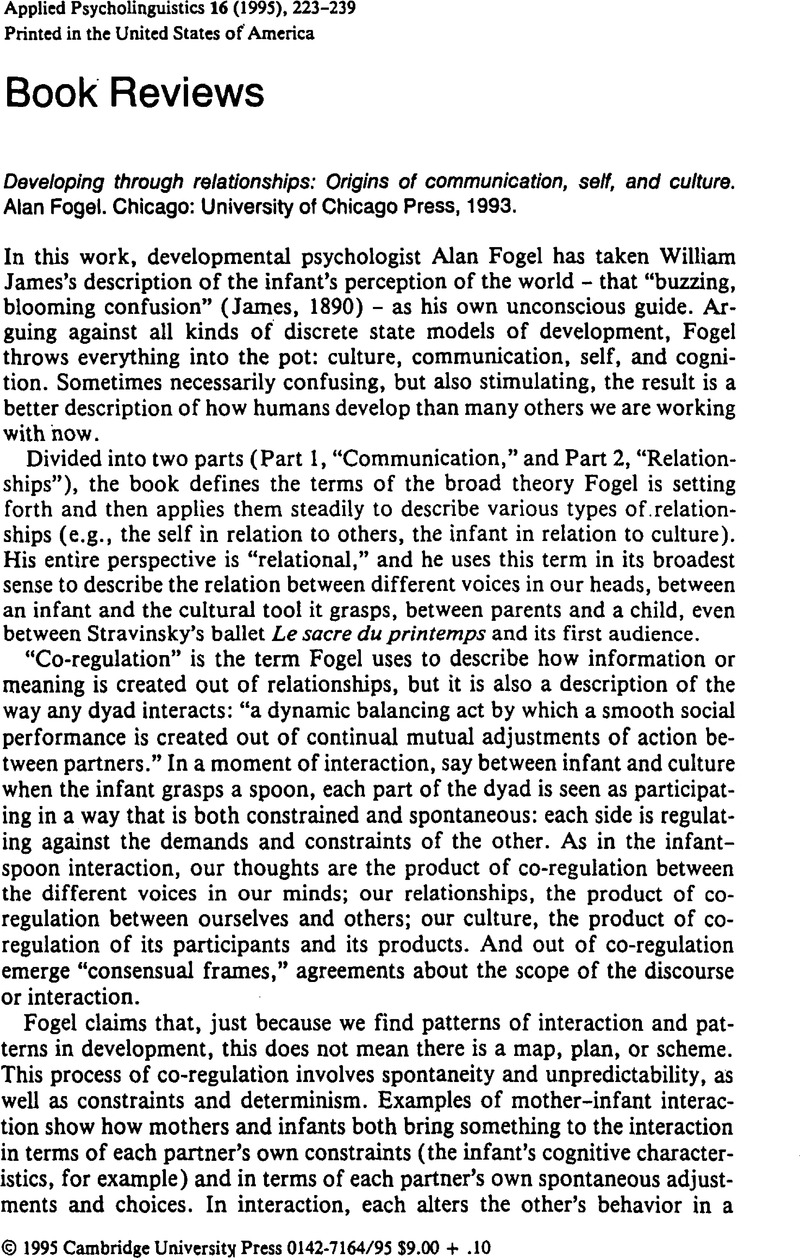No CrossRef data available.
Article contents
Developing through relationships: Origins of communication, self, and culture. Fogel Alan. Chicago: University of Chicago Press, 1993.
Published online by Cambridge University Press: 28 November 2008
Abstract
An abstract is not available for this content so a preview has been provided. Please use the Get access link above for information on how to access this content.

- Type
- Book Reviews
- Information
- Copyright
- Copyright © Cambridge University Press 1995
References
REFERENCES
Baldwin, J. M. (1897). Social end ethical interpretations in mental development. New York: Macmillan.Google Scholar
Baldwin, J. M. (1902). Social and ethical interpretations in mental development, 3rd ed., rev, and enlargement. New York: Macmillan.Google Scholar
Lamb, S., & Wozniak, R. H. (1990). Developmental co-construction: Metatheory in search of method. Contemporary Psychology, 35, 853–854.Google Scholar
Valsiner, J. (Ed.). (1988). Child development within culturally structured environments: Parental cognition and adult–child interaction (Vols. 1, 2). Norwood, NJ: Ablex.Google Scholar
Wozniak, R. H. (1986). Notes toward a co-constructive theory of the emotion-cognition relationship. In Bearison, D. J. & Zimiles, H. (Eds.), Thought and emotion: Developmental perspectives. Hillsdale, NJ: Erlbaum.Google Scholar




